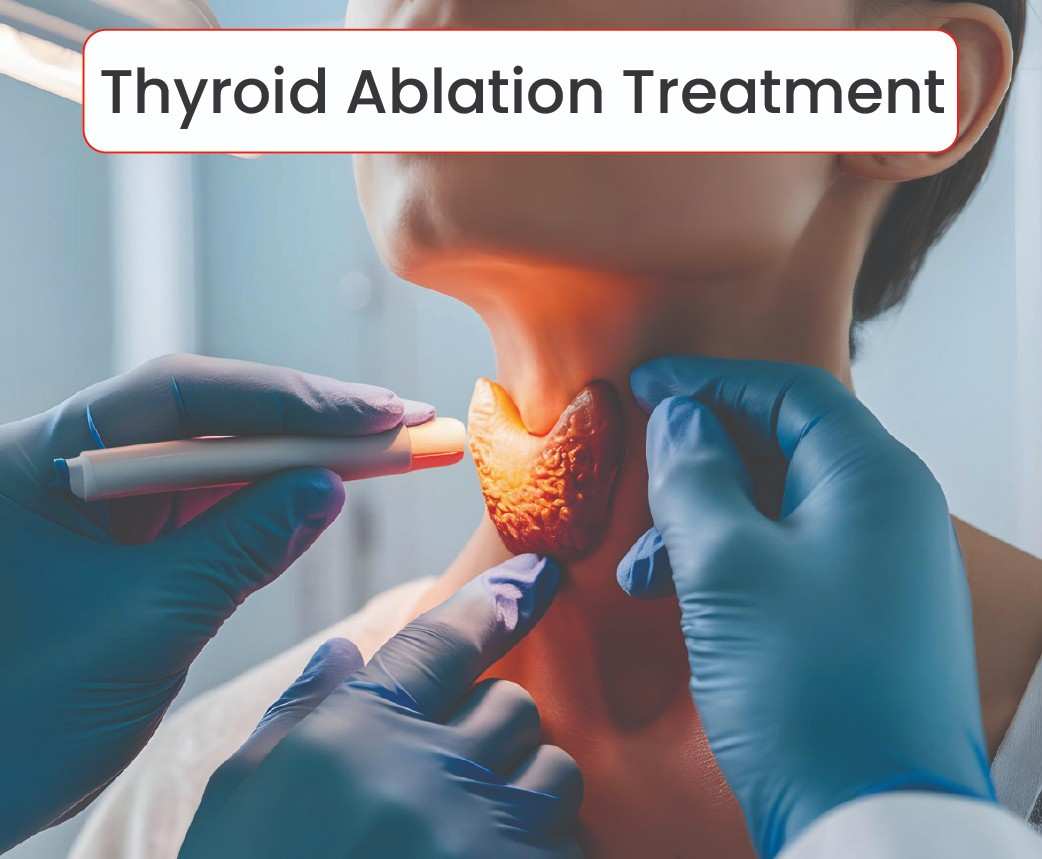Thyroid ablation, also known as radiofrequency ablation (RFA) or ethanol ablation, is an advanced, minimally invasive procedure to treat benign thyroid nodules and, in some cases, small, localized thyroid cancers. The growing popularity of thyroid ablation is driven by the need for a safer, effective alternative to traditional thyroid surgery. With an increasing number of people affected by thyroid issues worldwide, thyroid ablation has emerged as an essential treatment in managing these conditions while minimizing risks.
Why Thyroid Ablation is Necessary Today
Thyroid nodules are common, affecting up to 60% of adults, and most are benign. However, they can sometimes cause symptoms due to their size or location, such as difficulty swallowing, a persistent cough, or cosmetic concerns. Traditional thyroid surgery, which involves removing part or all of the thyroid gland, comes with potential complications, including scarring, risk of nerve damage, and lifelong dependence on thyroid hormone replacement if a significant portion of the thyroid is removed. Given these factors, thyroid ablation offers a non-surgical alternative that reduces risks and shortens recovery time, making it particularly relevant today as patients seek safer, less invasive treatments.
Additionally, there is a growing awareness of the risks of overtreatment for small, low-risk thyroid cancers. Many patients and physicians are opting for thyroid ablation to manage these cases, as it avoids the need for full thyroid removal and allows patients to maintain normal thyroid function.
How Thyroid Ablation Works
In a thyroid ablation procedure, a doctor uses ultrasound guidance to insert a small needle into the thyroid nodule. Energy (either heat from radiofrequency waves or ethanol) is delivered through the needle to target and destroy the nodule’s tissue. This precise technique allows for effective treatment with minimal impact on surrounding tissues. The dead tissue is gradually absorbed by the body, causing the nodule to shrink over time.
The procedure is typically performed under local anesthesia and takes about 30 to 60 minutes, depending on the nodule size. Patients can usually resume normal activities within a day or two, and there is no scarring, making it a particularly attractive option for individuals concerned with aesthetics.
Benefits of Thyroid Ablation for Patients
Thyroid ablation offers numerous advantages over traditional surgery, making it a highly beneficial treatment option for patients with benign or low-risk thyroid nodules:
- Minimally Invasive with Minimal Downtime
Since it doesn’t involve large incisions, thyroid ablation allows patients to return to normal activities much sooner than surgery. Most patients experience only mild discomfort, and recovery is swift, with many resuming work within a day. - Preserves Thyroid Function
Unlike surgery, which may remove part or all of the thyroid gland, ablation treats only the affected tissue. This means the thyroid can continue to function normally, reducing the need for lifelong thyroid hormone medication. - Effective Symptom Relief
For individuals experiencing symptoms from large or noticeable nodules, thyroid ablation can significantly reduce the size of the nodule, alleviating symptoms like difficulty swallowing, discomfort, or visible swelling in the neck. - Aesthetic Advantage
Because thyroid ablation doesn’t involve surgical incisions, there’s no visible scarring on the neck. This is particularly beneficial for patients who are concerned about the cosmetic impact of surgery. - Low Risk of Complications
Thyroid ablation has a lower risk of complications compared to surgery, including minimal risk of nerve damage to the vocal cords. This makes it a safer choice for patients, particularly older adults or those with health conditions that increase surgical risks.
Why Thyroid Ablation Matters Now
The rising incidence of thyroid issues, combined with a preference for less invasive treatments, makes thyroid ablation an essential option in the field of endocrinology today. As patients increasingly seek treatments that offer safety, quick recovery, and effective results, thyroid ablation provides a perfect balance. It is especially valuable for those with benign thyroid nodules or low-risk thyroid cancers, allowing for effective treatment without compromising thyroid function or quality of life.
In conclusion, thyroid ablation is an advanced, patient-friendly treatment that aligns well with modern healthcare’s goals: minimal invasiveness, maximum efficacy, and high patient satisfaction. For those dealing with thyroid nodules, ablation represents a promising path to relief and recovery without the challenges of traditional surgery.
Thyroid ablation is done by our expert doctors at Avis Vascular Center. Call today, and talk to our doctors for more clarity on the procedure.




